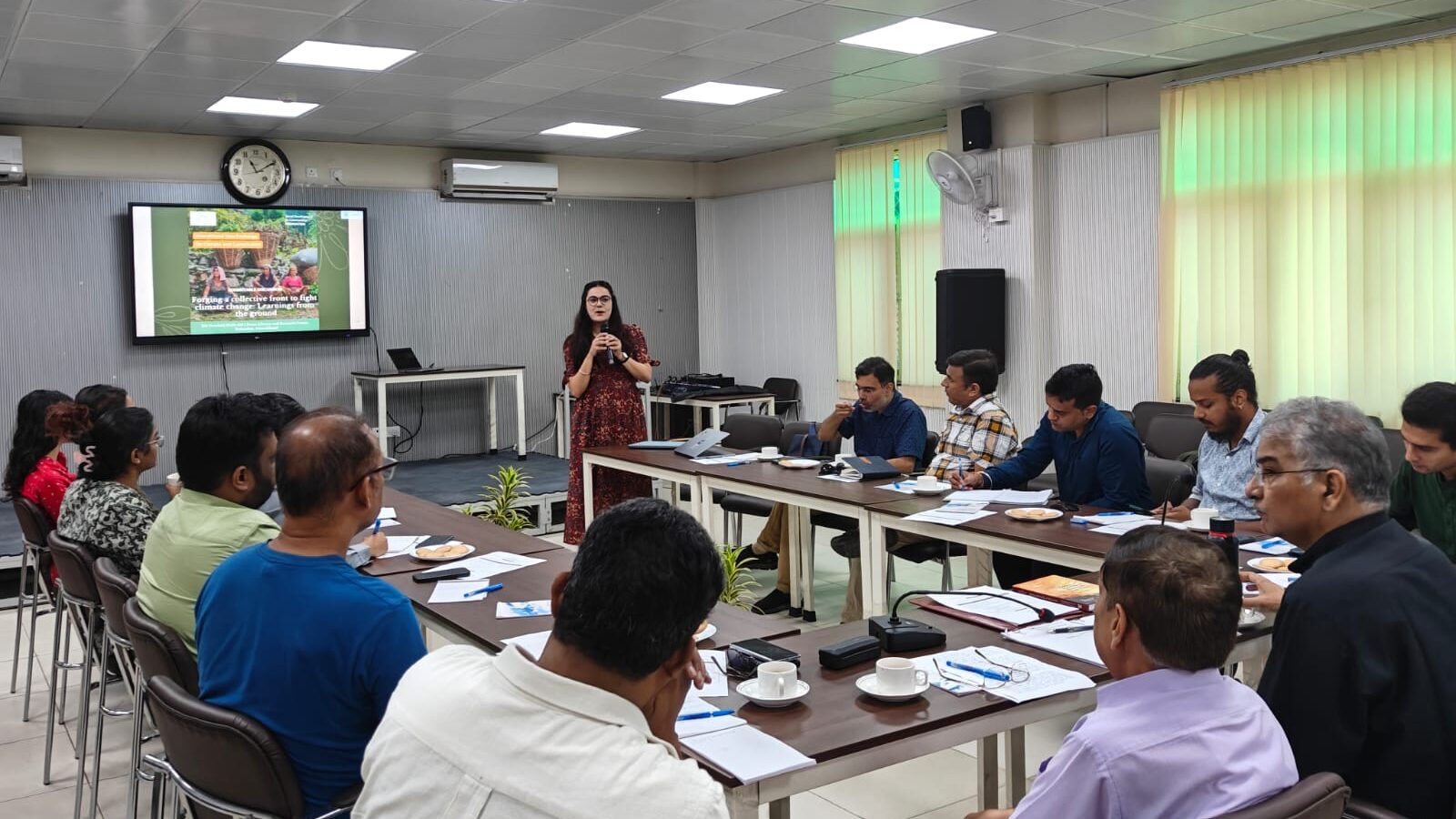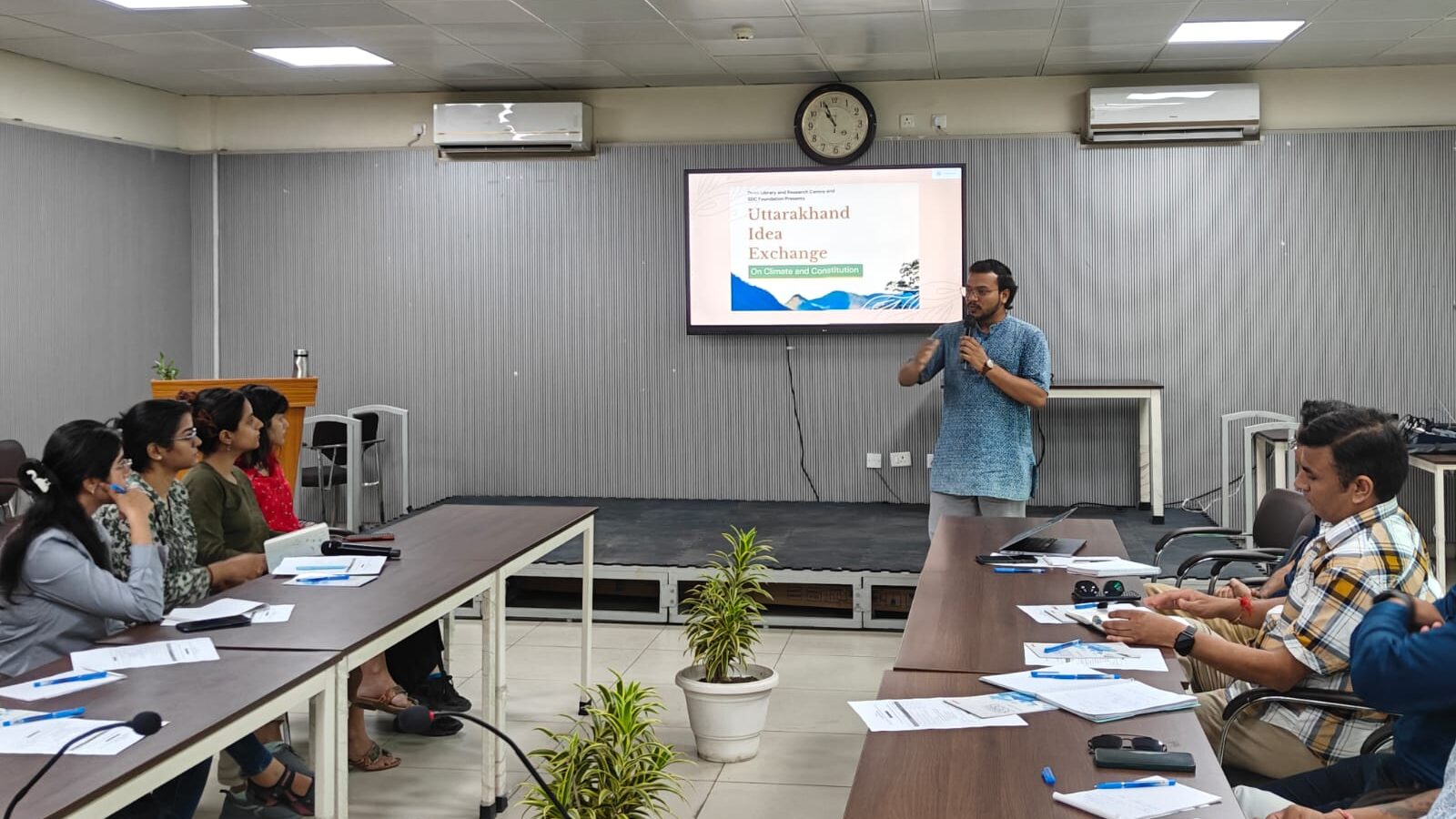SDC Foundation conducted its third and final event under the Uttarakhand Idea Exchange, a Roundtable Dialogue on Forging a Collective Front to Fight Climate Change: Learnings from the Ground
Organised by SDC Foundation in collaboration with the Doon Library, the dialogue gathered a diverse group of stakeholders, including civil society organisations, policy experts, academicians and young professionals, emphasising the importance of collective action informed by grassroots insights.
The session began with a welcome address by Chandra Sekhar Tiwari, Program Associate at the Doon Library and Research Centre, followed by an introduction by SDC Founder Anoop Nautiyal who highlighted the initiative's earlier held youth workshop and panel discussion. He underscored the initiative’s focus on collaborative dialogues addressing Uttarakhand’s pressing climate issues.
Gautam Kumar, Fellow at SDC and Assistant Professor at UPES School of Law, set the context for the discussion, stressing the need to incorporate grassroots experiences into policy discourse and highlighting the necessity of integrating local knowledge into climate policy to ensure sustainable development in the region.
Vishal Singh of CEDAR opened the conversation by critiquing the tendency to attribute environmental degradation solely to climate change, emphasising the role of poor governance. He called for stronger enforcement of environmental regulations and collaboration between civil society, academia and the state. BAIF’s Deepak Mahanta shifted the conversation to sustainable agriculture, advocating for climate-resilient farming practices like diversified cropping and soil regeneration.
Rohit Joshi of Recykal shared information about an innovative waste management solution implemented in Kedarnath, where a deposit return system for plastic waste has led to a 90% recovery rate. He stressed the importance of raising public awareness about waste management. Ayush Joshi from IDEAL Foundation expanded on waste management by discussing the need for household-level waste segregation and engagement with corporate producers through Extended Producer Responsibility (EPR) frameworks.
Tarun Sharma of Nagrika shared his in depth experiences of working with smaller cities while emphasising the criticality of knowledge gaps, lack of citizen engagement and low levels of existing internal capacities in government institutions. Pankaj Kargeti from CEEW emphasised the need for increased awareness and adoption of solar power. He stressed the importance of educating both government officials and local communities.
Jeet Bahadur from Burans focused on mental health impacts of climate change in Uttarkashi, where changing weather patterns have destabilised agriculture. He stressed the need for community engagement and emphasised the importance of public pressure in driving policy change. Anil Joshi of Ingenious Foundation said that it was crucial to understand the perspectives of businesses in the context of rural areas from a climate and community oriented lens.
The discussion covered intellectual property rights (IPR) with Vaishali, a Professor at UPES, who argued for protecting traditional knowledge through IPR laws. She highlighted the potential of using technology to promote entrepreneurship among indigenous communities.
The session concluded with an open dialogue, where participants discussed the next steps for engagement with the state and local communities. Participants agreed on the importance of continued dialogue and collective action to address climate change in Uttarakhand.
Anoop Nautiyal closed the event by reaffirming the importance of collective action to address climate change in Uttarakhand. Young professionals like Arunima Naithani, Aditi Dimri, Kiran Rawat, Sumit Singh and Vasish Kumar along with Sundar Singh Bisht from Doon Library attended the roundtable dialogue.

